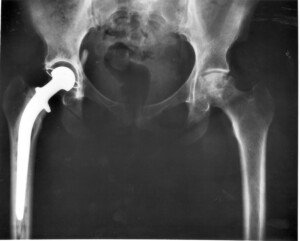
Here’s what you need to know if you’re over 80 and wondering if it’s worth it to have a hip or knee replacement electively. How safe is it?
It’s one thing if an 80-plus person absolutely has to have a total hip or knee replacement due to an acute injury such as from a fall or motor vehicle accident.
But what about people over age 80 who are plagued by the pain of osteoarthritis in their joints and are wondering about the mortality rates of a hip or knee replacement?
“Studies seem to indicate that total joint replacement in the elderly, provided all factors regarding the patient’s health are similar, are really quite safe,” says Barbara Bergin, MD, board certified orthopedic surgeon at and co-founder of Texas Orthopedics, Sports & Rehabilitation Associates.
“There may be a slightly higher potential for post-operative complications, which would seem intuitively apparent,” continues Dr. Bergin.
“However, when compared to the benefits of improved quality of life, increased mobilization and reduced use of pain relievers, consideration of these operations in folks over 80 is becoming a reality.”
One such study is in the Journal of Bone and Joint Surgery (July 2014), affirming that these kinds of surgeries for people over 80 are generally safe.
This applies to patients with few to zero accompanying medical conditions.

“It is especially important when we also consider the aging population, as well as the activity of the elderly now, as compared to decades in the past,” says Dr. Bergin.
“It is harder to recover from a total knee replacement than a total hip replacement.
“We have to consider the rigors of rehabilitation and a patient’s ability to comply with a program when discussing total knee replacement.
“Dementia and overall physical disability certainly influence our decision to recommend surgery.
“Not so with total hip replacements. In fact, we frequently do basically the same operation for hip fractures [when compared to hip osteoarthritis] in the very elderly, and they do quite well. They’re able to bare weight and mobilize very quickly.
“My dad had his knee replaced when he was 79. He was golfing three months later. He is now 87 and still golfing a couple of times a week!”
The BJS study, which involved hundreds of thousands of patients spanning a number of years, showed that in people with no other medical conditions/diseases (comorbidities) or only a small number of comorbidities, the in-hospital complication rate decreased significantly for total knee replacement in patients over age 80.
However, the in-hospital complication rate for total hip replacement, with these same variables, remained about the same.
For overall patients (i.e., including those with many comorbidities) over 80, the complication rate for total knee replacement went from 9.9 percent to 9.1 percent, and for total hip replacement, it went from 9 percent to 10.3 percent.
Again, these figures include the patients with more comorbidities (e.g., diabetes, congestive heart failure, poor kidney function).
The in-hospital death rate for patients over 80 who had a total knee replacement was 0.3 percent, and for total hip replacement, 0.5 percent.









































